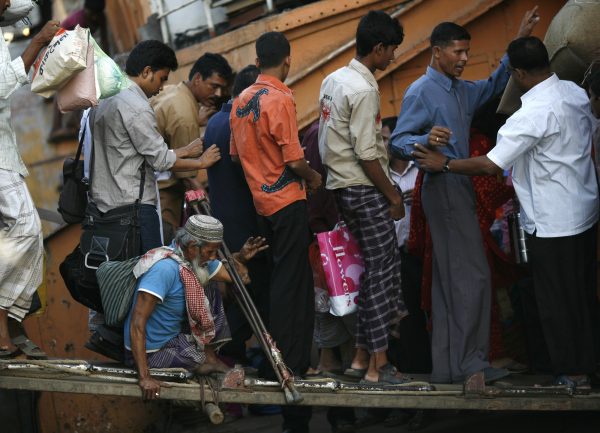Bangladesh is one of the most densely populated countries in South Asia with 163 million people. According to the Report on Bangladesh Sample Vital Statistics in 2018, 8.5 Bangladeshis per thousand have some form of disability. As of mid-September, there are over 1.5 million confirmed cases of COVID-19 and 27,000 deaths. Statistics of people with disabilities in this regard are absent.
The United Nations Conventions on the Rights of Persons with Disabilities specifically urge in Article 11 that state parties should take ‘all necessary measures to ensure the protection and safety of persons with disabilities in situations of risk, including situations of armed conflict, humanitarian emergencies and the occurrence of natural disasters’.
The Bangladesh government has multiple policies to protect the rights of people with disabilities. Most importantly, the Rights and Protection of Persons with Disabilities Act 2013 was enacted to protect the fundamental rights of people with disabilities in Bangladesh. Despite this, the level of actual protection for people with disabilities during COVID-19 is largely unknown.
To address the virus, according to the World Economic Forum and the International Monetary Fund, the Bangladesh government has taken multiple initiatives. One initiative is that the government arranged multiple hospitals for dedicated COVID-19 testing and care. Another initiative is to close educational institutions for some time. Moreover, the government works to raise continuous public awareness and provide cash benefits to extremely poor people during the pandemic.
COVID-19 has increased the risk that many people in Bangladesh, including those with disabilities, will fall into extreme poverty and hunger. It has impacted people with disabilities’ level of access to transportation, which then impacts their ability to receive disability allowances. People with disabilities have less access to personal protective equipment, many lost income earning opportunities and were affected by increased stigma due to the pandemic.
People with disabilities, especially women and children, are living in an extremely disadvantaged position in Bangladesh. Besides the government, some NGOs and disabled people’s organisations have supported those with disabilities during the pandemic but this is insufficient. These NGOs often lack funding to continue their support activities.
A wide range of measures, including policy reforms, are vital to assist people with disabilities in Bangladesh. An empowering and inclusive policy should provide clear guidelines on how to best address these challenges, especially for highly disadvantaged people such as people with disabilities. The government of Bangladesh should make sure that it is providing necessary services to people with varied disabilities with varied needs by ensuring access to COVID-19 testing sites and information.
During COVID-19, people with different impairments such as mental illness, speech disorders, vision impairments and hearing impairments need customised communication support. The government could mobilise volunteers with different skills related to the needs of people with different types of disabilities.
The government should make sure that people with disabilities can access vaccination on a priority basis. Local community infrastructure could be used for initial support with trained nurses or health workers. People with disabilities should have access to mental health services. Technology such as mobile phones could be used to deliver these services without moving anywhere or requiring in-person contact with others.
People with disabilities need access to credit services to address financial shocks. However, those people who already have access to credit need to get more flexibility to repay debt compared to people without disabilities. Regulators of financial service providers should focus on this issue.
The government should allocate its resources, especially cash transfers, to people with disabilities through digital platforms to access more people in remote areas. It has become evident that people with disabilities from rural areas are more ostracised and, therefore, they require special attention during this pandemic. All of these necessary measures should be gender friendly.
As the Bangladesh government responds to the COVID-19 pandemic, it is essential that the complex needs of people with disabilities are considered and included in policy responses. Doing so ensures that existing inequalities are not worsened.
Debashis Sarker is a PhD Research Scholar at the University of Queensland.

